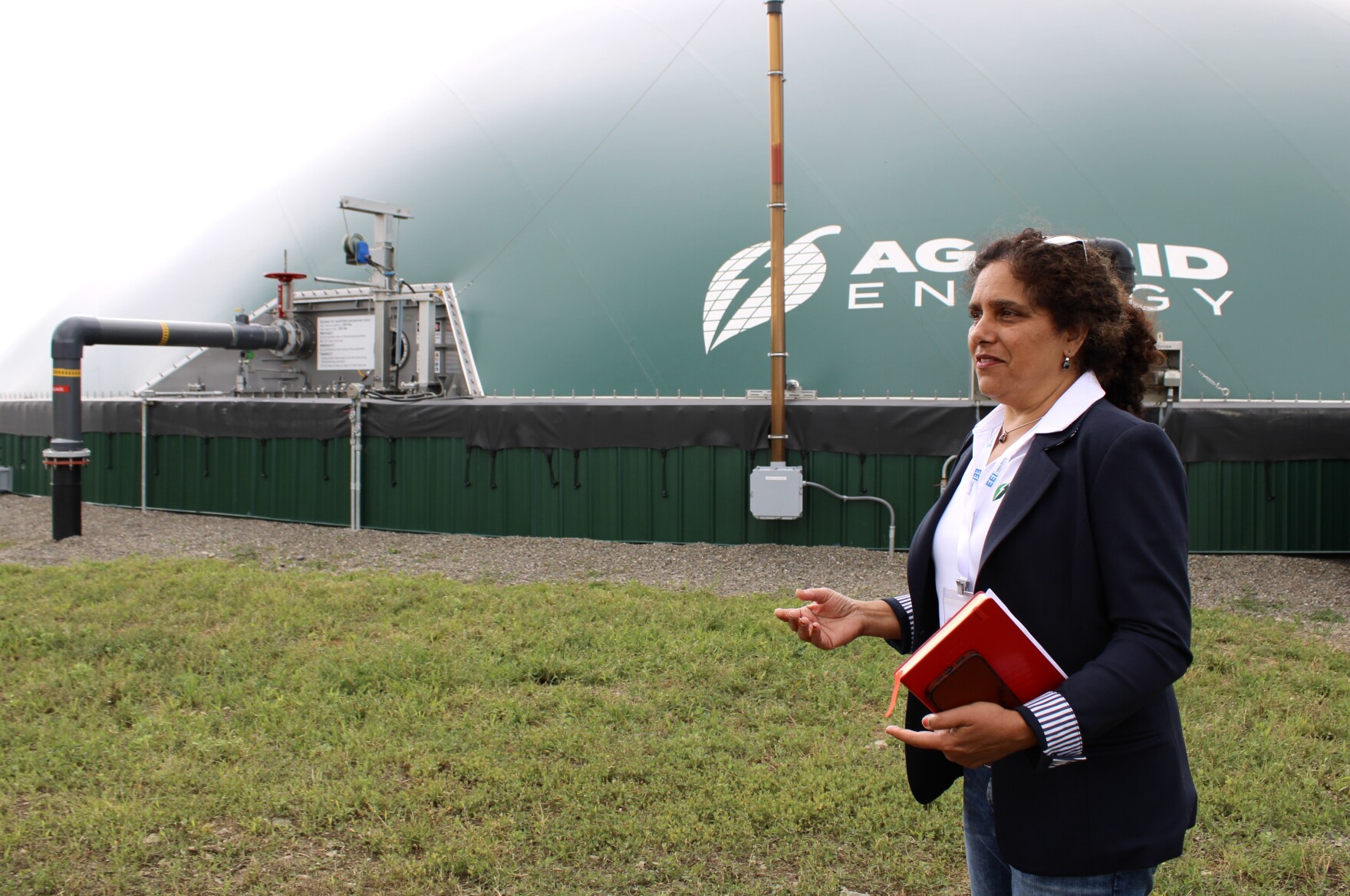Professor Peng Zhang from the University of Connecticut Department of Electrical and Computer Engineering has received nearly $400,000 from the Department of Energy to develop a computational method for studying and predicting how our nation’s power grids, with high penetration of distributed energy resources (DER), like solar energy, will respond to various conditions and situations.
Traditional energy distribution models are a one-way system from the plant that generated to the user. Distributed energy resources, however, are decentralized electric systems using a two-way power flow, usually of renewable energy like solar or wind. By distributing the energy, these systems provide more stability and backup power for periods of high use when the generation of renewable energy can’t keep up. They allow for ultra-fast grid control and load changes. However, on the flip side of these advantages, the high penetration of power electronic components, which convert other energies into electrical power, make the grid highly sensitive to disturbances like storms or cyberattacks.
Being able to understand the stability of our bulk transmission-distribution grid under a nearly infinite set of possible scenarios and being able to control these conditions and the grid’s response is of the utmost importance to the development of this technology.
Zhang’s project will work to establish an innovative and tractable method, looking specifically at formal analysis (FA), to assess the stability of the transmission and distribution grids from various sources, including DERs, under a variety of possible adverse conditions.
“Formal methods are all about building resilience in our power grids — that ability to overcome the unexpected and bounce back,” says Zhang.
Zhang and his team will work to develop a formal theory that can be used to mathematically compute the bounds of all possible trajectories. These predictions can then be used to predict the stability of the system under certain conditions.
A new formal analysis toolbox will be applicable not only for forecasting and monitoring grid performance, but also formally verifying various resiliency enhancement strategies. These computational tools can aid in the development of new system integrity protection measures and automation to adapt to the evolution of electric networks as they continue to move toward DER technology.
Zhang received his Ph.D. in electrical engineering from the University of British Columbia, Vancouver. His current research interests include microgrids and networked microgrids, power system stability and control, networked systems, and cyber-physical security.
This project is DOE Award number 34761.



